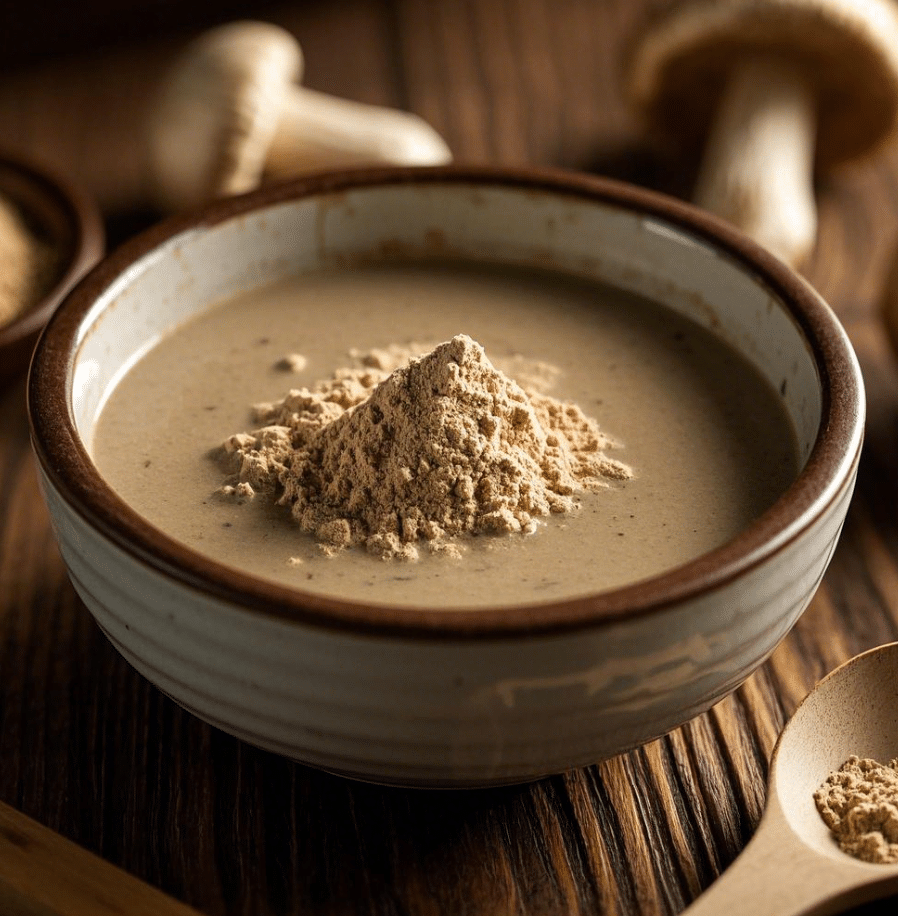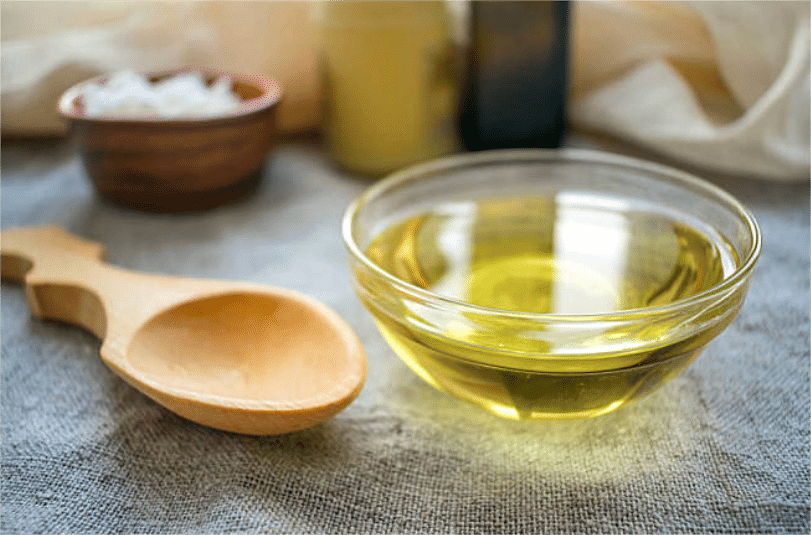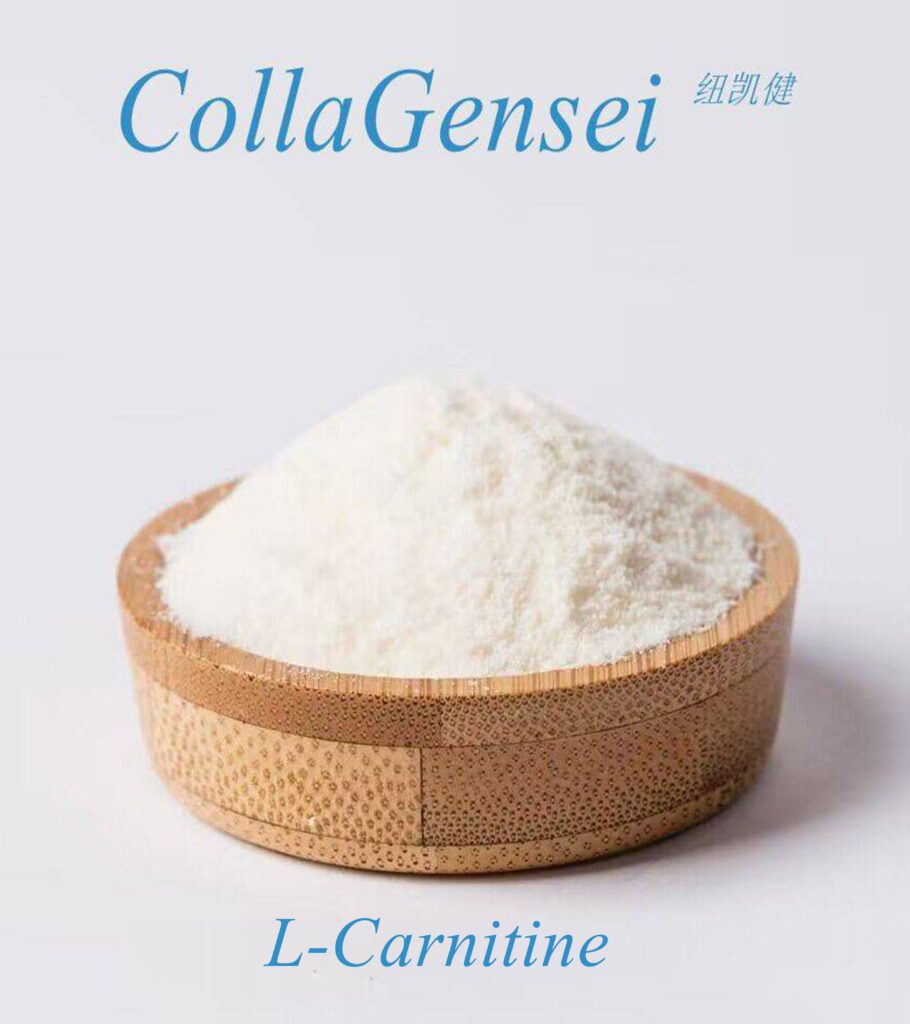Unlocking the Power of Mushroom Soup Powder: The B2B Guide to Nature’s Superfood
Hey there, health food aficionados and savvy business minds! Today, we’re diving deep into the world of mushroom soup powder – a game-changer that’s taking the health and culinary industries by storm. Whether you’re a brand owner, ingredient processor, or just curious about the next big thing in nutrition, buckle up because we’re about to go on a fungi-tastic journey!
The 411 on Mushroom Soup Powder
First things first, let’s break down what mushroom soup powder actually is. This isn’t your grandma’s cream of mushroom soup powder – oh no, it’s so much more! Mushroom soup powder is part of the larger mushroom complex powder family, packing a serious punch of flavor and health benefits in a convenient, shelf-stable form.
But what’s the deal with its basic info? Here’s the lowdown:
– Aliases: Fungal extract powder, mushroom extract
– Latin name: Varies depending on mushroom species used
– CAS number: Not applicable (it’s a natural product, folks!)
– Production standards: Generally follows GMP (Good Manufacturing Practices)
– Appearance: Fine, light-colored powder (can range from white mushroom powder to mushroom yellow powder)
– Taste: Umami, earthy, sometimes slightly sweet
– Solvents used: Usually water for extraction
– Common specs: 10:1, 20:1 concentration ratios
– Mesh size: Typically 80-200 mesh
– Import tariffs: Varies, but often falls under “vegetable preparations” category
– HS code: Typically 2106.90 (food preparations not elsewhere specified)
– Shelf life: Usually 2-3 years when stored properly
– Storage: Cool, dry place away from direct sunlight
– Packaging: Often in 1kg, 5kg, or 25kg food-grade bags
The Birth of a Superfood
So, when did this mighty mushroom powder burst onto the scene? While mushrooms have been used in traditional medicine for centuries, the concentrated powder form gained traction in the late 20th century. Research teams from various countries, including Japan and China, pioneered studies on the health benefits of concentrated mushroom extracts.
What’s It Look Like?
In the market, you’ll mostly find mushroom soup powder in – you guessed it – powder form. But don’t be surprised if you come across oil-based extracts too. The powder is versatile and can be easily incorporated into various products, from soups (duh!) to supplements.
Making the Magic: Production Process
Curious about how to make mushroom extract powder? It’s not rocket science, but it does require some fancy footwork:
1. Selection: Choose high-quality mushrooms (oyster mushroom powder, anyone?)
2. Cleaning: Wash and prepare the mushrooms
3. Drying: Remove moisture to concentrate the good stuff
4. Extraction: Use water or sometimes alcohol to extract beneficial compounds
5. Concentration: Reduce the liquid to intensify the extract
6. Spray-drying: Turn the concentrated liquid into a fine powder
The main production methods include hot water extraction, alcohol extraction, and sometimes a combination of both. Some producers are also exploring ultrasonic extraction for higher yields.
As for additives, sometimes you’ll see anti-caking agents or flow agents added to improve the powder’s properties. But the best products keep it au naturel.
Is It Water-Soluble?
Great question! Most mushroom soup powders are indeed water-soluble, making them super easy to use in various applications. Just mix it in, and voila!
Where Can You Use This Stuff?
The applications for mushroom soup powder are as vast as a mushroom’s mycelial network:
1. Functional foods: Think energy bars, protein shakes, and yes, soups!
2. Dietary supplements: Capsules, tablets, and powders
3. Nutraceuticals: For that extra health kick in various products
4. Culinary applications: As a flavor enhancer and nutrient booster
5. Beverages: In trendy functional drinks and smoothies
The Benefits: Why Everyone’s Going Mushroom Crazy
Alright, let’s talk about why mushroom soup powder is the Taylor Swift of the supplement world – everyone’s obsessed, and for good reason!
1. Immune support: Beta-glucans in mushrooms can give your immune system a serious boost.
2. Antioxidant powerhouse: Fighting those pesky free radicals like a champ.
3. Cognitive function: Some studies suggest it might help keep your brain sharp.
4. Energy and stamina: Many users report feeling more energized.
5. Stress management: Adaptogenic properties can help your body handle stress better.
But hold up – is it all sunshine and rainbows? While mushroom powder is generally safe, some people might experience mild side effects like digestive upset. As always, it’s best to consult with a healthcare pro before adding any new supplement to your routine.
How Does It Work Its Magic?
Mushroom powder works its mojo through a complex interplay of bioactive compounds. These compounds interact with various systems in your body, potentially modulating immune function, supporting cellular health, and even influencing neurotransmitter activity. It’s like having a team of microscopic health coaches working 24/7!
Quality Control: How to Spot the Good Stuff
When it comes to testing mushroom powder, several methods come into play:
1. HPLC (High-Performance Liquid Chromatography) for identifying specific compounds
2. Microbial testing to ensure safety
3. Heavy metal analysis
4. Beta-glucan content analysis
Popular Mushroom Powder Blends
In the market, you’ll find various mushroom powder formulations:
1. Immune blend: Often includes reishi, turkey tail, and maitake mushroom powder
2. Cognitive blend: Lion’s mane is often the star here
3. Energy blend: Cordyceps is a common player
4. Gut health blend: A mix aimed at being the best mushroom powder for gut health
Dosage and Timing: How Much is Just Right?
Dosage can vary widely depending on the specific product and concentration. Generally, most supplements recommend between 500mg to 2000mg per day. As for timing, it can take anywhere from a few weeks to a couple of months to notice significant effects. Remember, consistency is key!
The Science Behind the Magic
Recent clinical studies have shown promising results in areas like immune modulation, cognitive function, and even athletic performance. A 2019 study published in the Journal of Medicinal Food found that a blend of medicinal mushrooms improved immune function markers in healthy adults.
Mushroom Powder vs. The Competition
While mushroom powder is awesome, it’s not the only player in the game. Other products with similar benefits include:
1. Herbal adaptogens like ashwagandha and rhodiola
2. Green superfood powders
3. Probiotic supplements
4. Antioxidant-rich berry extracts
The Global Mushroom Powder Scene
Now, let’s take a whirlwind tour of the mushroom powder market around the globe:
– USA: FDA generally recognizes many mushroom species as safe (GRAS)
– Europe: Regulations vary, but many countries allow mushroom powders as food supplements
– Australia & New Zealand: Generally regulated as complementary medicines
– Canada: Often classified as Natural Health Products
– Japan & South Korea: Long history of mushroom use, relatively permissive regulations
– Southeast Asia: Growing market, regulations still evolving
– South America: Varies by country, but generally allowed as dietary supplements
Market Outlook: The Future’s Looking Fungi
The global mushroom powder market is mushrooming (sorry, couldn’t resist)! Here’s a quick snapshot:
– Global market size: Estimated at $1.2 billion in 2020
– Growth rate: Projected CAGR of 8.7% from 2021 to 2028
– Regional distribution: North America and Asia-Pacific leading the charge
– Future potential: Growing interest in natural health products and functional foods suggests a bright future
FAQs: What the Pros Are Asking
1. Which are more convenient to prepare, Mushroom Soup Powder or canned mushroom soup?
Mushroom Soup Powder is typically more convenient, requiring only hot water to prepare.
2. Are Mushroom Soup Powder and fresh mushroom soup equally flavorful?
Fresh mushroom soup often has a more pronounced flavor, but quality powder can be very close.
3. Are Mushroom Soup Powder and canned mushroom soup similarly priced?
Mushroom Soup Powder is often more economical, especially when considering storage and serving size.
4. Are Mushroom Soup Powder and homemade mushroom soup equally nutritious?
Homemade soup typically offers more nutrients, but powder can be fortified with vitamins and minerals.
5. Are Mushroom Soup Powder and liquid soup bases equally versatile in cooking?
Mushroom Soup Powder is generally more versatile due to its concentrated form and ease of storage.
6. Are Mushroom Soup Powder and fresh mushrooms equally long-lasting?
Mushroom Soup Powder has a significantly longer shelf life compared to fresh mushrooms.
7. Are Mushroom Soup Powder and canned soup equally portable for outdoor activities?
Mushroom Soup Powder is more portable due to its lighter weight and compact packaging.
8. Are Mushroom Soup Powder and fresh mushroom soup equally quick to prepare?
Mushroom Soup Powder is quicker to prepare, often ready in just a few minutes.
9. Are Mushroom Soup Powder and restaurant mushroom soups equally customizable?
Mushroom Soup Powder offers more customization options for home cooks.
10. Are Mushroom Soup Powder and fresh mushroom soup equally consistent in taste?
Mushroom Soup Powder provides more consistent flavor across preparations.
11. Are Mushroom Soup Powder and canned mushroom soup equally eco-friendly in packaging?
Mushroom Soup Powder often has less packaging waste compared to canned soups.
Pros and Cons: Keeping It Real
Pros:
1. Versatile ingredient for various applications
2. Rich in beneficial compounds
3. Generally safe with few side effects
4. Growing consumer interest
5. Potential for unique product formulations
Cons:
1. Taste can be challenging for some applications
2. Varying regulations across countries
3. Quality can vary significantly between suppliers
4. Limited long-term studies on some species
5. Can be more expensive than synthetic alternatives
Choosing Your Mushroom Powder Supplier: Pro Tips
1. Ask for samples and test before committing
2. Check for certifications (organic, GMP, etc.)
3. Request detailed specs and Certificates of Analysis
4. Inquire about their quality control processes
5. Consider their capacity for custom formulations
The Production Process: A Quick Look
1. Mushroom cultivation or sourcing
2. Cleaning and preparation
3. Extraction (hot water, alcohol, or both)
4. Concentration
5. Spray-drying
6. Quality testing
7. Packaging
Ready to Mushroom Your Business?
If you’re looking to get your hands on top-quality mushroom powder, look no further than Gensei Global Industries! We’re FDA-certified with ISO, HALAL, KOSHER, and MSC certifications. With warehouses in California and New York, we’ve got your mushroom needs covered coast to coast.
Need custom formulations or white-label products? We do that too! From capsules to powders, we’re your one-stop-shop for all things mushroom. Drop us a line at sales@collagensei.com, and let’s grow your business together!
Remember, whether you’re formulating the next big superfood blend or looking to boost your product line, mushroom powder is a trend you can’t afford to miss. It’s time to embrace the power of fungi and take your business to new heights. Happy formulating, and may the spores be with you!




